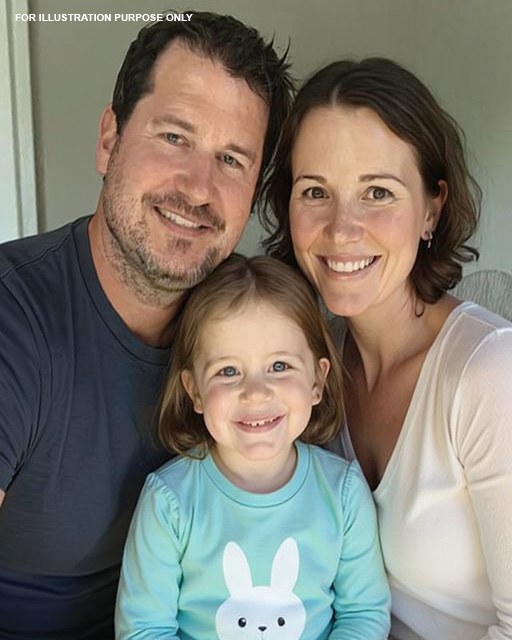I asked my daughter who she wanted at her fifth birthday party. I expected the usual names—her classmates, our neighbors’ twins, her grandparents. Instead, she said a name I didn’t know, and the world tilted on its axis.
“Mommy,” she said, spinning a pink crayon, “can we invite the lady who comes to see Daddy when you’re at work? She’s really nice. Sometimes she brings me juice.”
The crayon clattered onto the table. My mind went blank for a second.
“The lady who… visits Daddy?” I repeated cautiously.
She nodded, matter-of-factly. “Yes. She has pretty hair, sparkly shoes, and she sits on the couch with Daddy. They laugh together sometimes.”
Something inside me froze. My heart hammered. I gripped the table. “Sweetheart… what’s her name?”
Her brow furrowed in thought. “I think… Layla. Daddy calls her Layla.”
Layla. The name rang alarm bells. I forced a smile for my daughter and changed the subject quickly, but the image replayed in my head all day, twisting my stomach.
Josh had seemed dependable, always the calm one. He worked from home, I led my marketing team downtown. Married six years, together eight, a few arguments about chores or spending—yet none of it had prepared me for this.
That evening, I tucked my daughter in. She whispered, “Can Layla come? She makes Daddy happy.” I kissed her, promised to discuss it later, then went downstairs, trembling.
Josh scrolled on the couch, phone glowing. I wanted to demand answers immediately, but the memory of my daughter’s words restrained me.
“How was your day?” I asked lightly.
“Fine, same as usual. Worked, then spent time with Mia,” he said, not looking up. A heavy lie hovered.
For days, I became alert, watching, noting every glance, every phone movement. One Wednesday, I left work early. My daughter at preschool—if Layla existed, she would be here.
Quietly, I entered the house. Laughter echoed—a woman’s laugh. My stomach sank.
In the living room, Josh sat with a woman I’d never met. Layla. Chestnut hair, sparkling shoes, soft blouse. She matched my daughter’s description perfectly. My body froze.
“Josh,” I said quietly but sharply.
Startled, they both looked up. “It’s… not what it looks like,” he stammered. She held her bag, uneasy.
I laughed bitterly. “Looks exactly like it.”
“I should go,” she murmured, stepping toward the door. I called out, “Layla?” She nodded once, quietly.
The confrontation was inevitable. Josh admitted a months-long affair, insisted it wasn’t serious. I reminded him our five-year-old knew her name and her shoes. The betrayal cut deep.
Layla wasn’t cruel—just quietly present. Weeks later, I discovered she had been misled, thinking I was too busy, believing she posed no harm to our child.
Divorce papers were filed. Months later, I saw Layla in a café. She apologized. I told her: she hadn’t made the vows, but she had been part of the damage. I no longer hated her.
My daughter is now six. Birthday invitations: friends, grandparents, neighbors—no Layla. Still, her thoughtful expressions sometimes hint at memories she can’t articulate.
Betrayal wears many faces. Sparkly shoes can carry it. Yet my daughter’s innocence forced the truth into the open—a painful revelation that allowed me to see clearly and reclaim my life.
